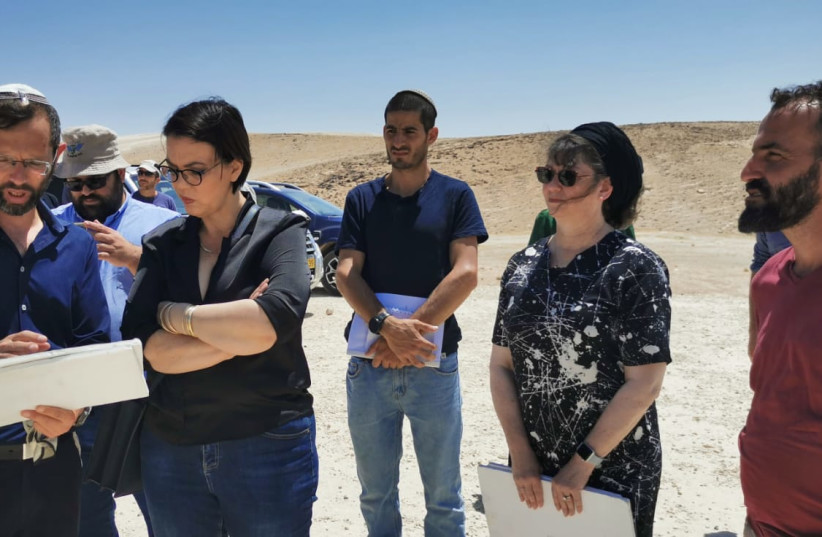Settlers fear Israel is weighing the retroactive legalization of Palestinian homes in Area C as a gesture to US President Joe Biden that would be announced during his visit, Yesha Council CEO Yigal Dilmoni said on Monday.
“We are talking about scores of illegal Palestinian sites,” Dilmoni said, as he clarified that he did not know which specific areas were on the table.
Nor, he said, had the Yesha Council be given any formal information on the matter.
But Biden’s visit, for them, has underscored the fragility of Israel’s hold on Area C of the West Bank, which is under Israeli military and civilian control and comprises 60% of the West Bank. Biden has been supportive of Palestinian development of Area C and opposed Israeli construction there.
United States politicians and presidents have been divided on the question of Area C. Even US President Donald Trump, however, believed that half of it should be part of the borders of a future Palestinian state.

The Palestinians believe that all of Area C, where the Israeli settlements are located, must be part of the final borders of their state.
In the absence of a peace process, the Right, including the settlement movement, has increasingly argued that all of Area C must be part of Israel final’s borders.
So they have opposed any steps to authorize Palestinian development and building there, fearing that any such construction would ensure that the territory would inevitably be part of a Palestinian state.

The fight for Area C
Settlers and the Israeli Right have argued that there is a plan, established by former Palestinian Prime Minister Salam Fayyad, to fortify certain strategic areas of Area C.
“We are fighting against this,” said Dilmoni, so “we have to stop each step.”
Biden’s trip is heavily focused on Saudi Arabia and Iran, but his stop in Israel, including this, plans to visit Bethlehem and an east Jerusalem Palestinian hospital placing the focus on the frozen peace process.
It’s unlikely that Biden could resurrect that process and there are only a few concrete gestures that the can offer the Palestinians.
What are the options?
One possible arena is to push Israel to either approve new plans for Palestinian development in Area C or to retroactively legalize existing homes.
Defense Minister Benny Gantz has already indicated that he is supportive of Palestinian development in Area C, particularly in exchange for Israeli construction there.
Such steps are also some of the few gestures, that can be done during an election period, with only the approval of Gantz and Prime Minister Yair Lapid.
Binyamin Regional Council head Israel Gantz warned that such a move in Area C, “brings the establishment of a Palestinian state closer and puts an arrow in the heart of Jewish settlement in Judea and Samaria.”
Both he and Dilmoni said they believed that fact that it was an election period, meant that such steps should not occur.
“The transitional government has no mandate to take such irreversible steps and endanger the Jewish hold in the heart of the Land of Israel,” he said.
“The transitional government has no mandate to take such irreversible steps and endanger the Jewish hold in the heart of the Land of Israel.”
Binyamin Regional Council head Israel Gantz
“We will not allow this,” he added.
